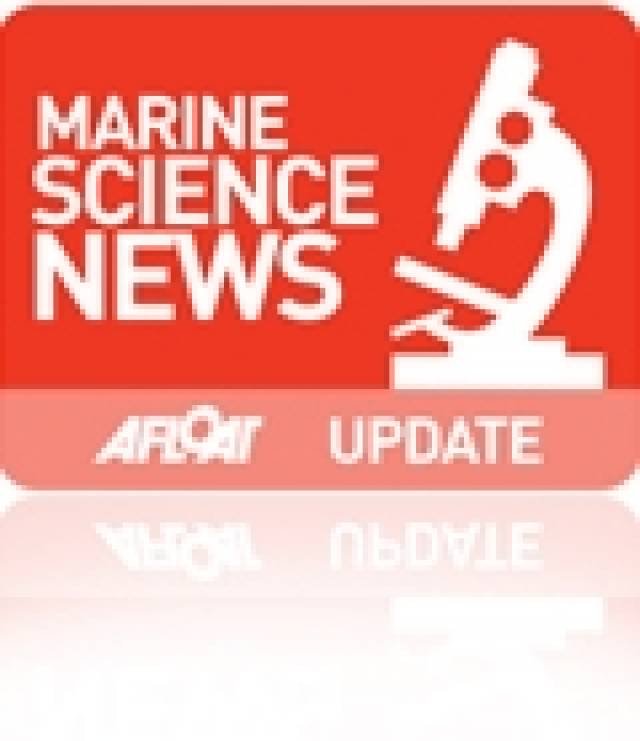#marinescience – The RV Celtic Explorer leaves Galway today (12th April) for Newfoundland and Labrador, on its fourth multi-institution transatlantic survey. The 13 day expedition across the Atlantic to St Johns, Newfoundland will involve four scientists from NUI Galway, as well students from UCC and GMIT. A team of six of scientists lead by Dr. George Rose from the Fisheries and Marine Institute of Memorial University, Newfoundland, will work alongside nine Irish scientists during the voyage.
The collaboration with Newfoundland and Labrador builds on the strong relationship established since the first Newfoundland survey on the Celtic Explorer in 2011.
"Such cooperation is key to improving our ocean wealth and promoting the sustainable management of its resources. It's hugely important for Ireland and brings us closer to achieving the goals of the 'Galway Statement on Atlantic Ocean Cooperation' signed here at the Marine Institute Galway last May by the EU, USA and Canada ", said Dr. Peter Heffernan, CEO Marine Institute.
Irish scientists onboard will study the rich and diverse pelagic ecosystem across the Atlantic Ocean. "Marine scientists from NUI Galway will study the oceanography and the deep scattering acoustic layers of the water columns using multi-frequency acoustics. This is then related to zooplankton abundance and ultimately to fish abundance, providing us with a better understanding of the ecosystem," explained Dr. Louise Allcock from NUI Galway.
Scientists from Galway Mayo Institute of Technology will study plastics found in the ocean. Micro-plastic debris is made up of tiny plastic granules, fibres and fragments less than 5mm in diameter. Although plastics are beneficial materials, micro-plastics appear to be pervasive in the ocean and scientists do not yet fully understand the impact that small plastic particles can have on the food chain. Ingesting the tiny particles may be toxic to the animals, and may prevent them from consuming their natural prey.
"We hope this research will help to raise awareness of the effects of plastics in the ocean and provide better ecosystem assessments across the Atlantic," said Ms Amy Lusher from Galway Mayo Institute of Technology who is completing a PhD on this topic.
Seabird and marine mammal observations will also be conducted by Aoife Foley from Galway Mayo Institute of Technology and Ashley Benison from University College Cork. These animals are considered top predators in the pelagic environment and the abundance of fish and zooplankton, their prey, ultimately affects their distribution and survival.
The Newfoundland team of scientists will continue their strong collaboration with the Irish scientists. "This collaboration is now into its 4th year with a major paper based on linking acoustic, biological and oceanographic data from 2011-2013 presented at the recent international Marine Science Conference in Hawaii," explained Dr Rose.
Sharing information and experiences with scientists from both sides of the Atlantic allows Irish researchers to forge strong links with our Newfoundland and Labrador – Canadian counterparts.
"Being the western and eastern bookends of the North Atlantic, and given our shared history, it seems only right that Newfoundland and Ireland scientists should work together on problems of mutual interest, and this has indeed proven to be very enjoyable and highly productive" Dr. Rose further stated.

































































